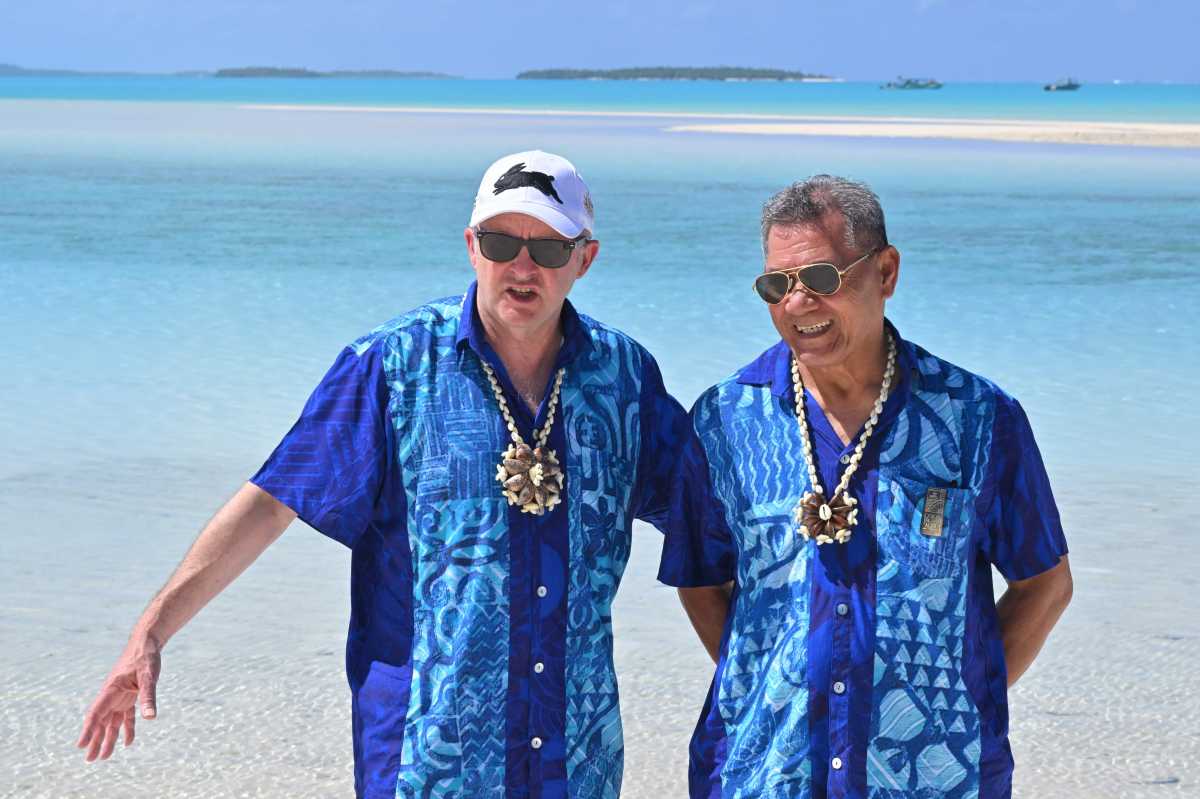World
Australia and Tuvalu Sign Groundbreaking Treaty with Visa Agreement

Australia and Tuvalu have signed a groundbreaking treaty that will establish a new visa program exclusively for Tuvalu residents to relocate, work, and study in Australia. Additionally, Australia has pledged to support Tuvalu during emergencies. Prime Minister Anthony Albanese considers this agreement a significant milestone between the two nations. The treaty also grants Australia the right to veto any potential security or defense partnerships between Tuvalu and China, further limiting China’s influence in the Pacific region.
Under this new arrangement, up to 280 Tuvalu residents will have the opportunity to migrate to Australia annually. This special mobility pathway aims to protect Tuvalu from experiencing a “brain drain” as it faces the existential threats posed by climate change. Tuvalu, consisting of nine low-lying atolls, is particularly vulnerable to rising sea levels, which could potentially lead to its depopulation.
The treaty, named the Australia-Tuvalu Falepili Union, also includes a commitment of $16.9 million from Australia to help Tuvalu’s main island expand its landmass by 6% to cope with rising sea levels. Furthermore, Australia will provide assistance to Tuvalu during natural disasters, health crises, and military aggression.
Both Prime Minister Albanese and Prime Minister Natano expressed their satisfaction with the treaty. Prime Minister Natano called it a “giant leap forward” in their joint mission to ensure regional stability, sustainability, and prosperity. Tuvalu recently updated its constitution to affirm its commitment to existing in perpetuity, regardless of climate change or other factors.
In 2019, former Australian Prime Minister Kevin Rudd proposed offering citizenship to residents of Tuvalu, Kiribati, and Nauru if their home islands became uninhabitable due to climate change. However, the suggestion was not favored by Tuvalu’s then-prime minister, who viewed it as a form of neo-colonialism.
Similar compacts have been established by the United States with Pacific nations such as Palau, the Marshall Islands, and the Federated States of Micronesia. New Zealand has also implemented agreements with Niue and the Cook Islands.
This landmark treaty and visa agreement between Australia and Tuvalu marks a significant step in addressing the challenges of climate change and strengthening their bilateral relationship.












